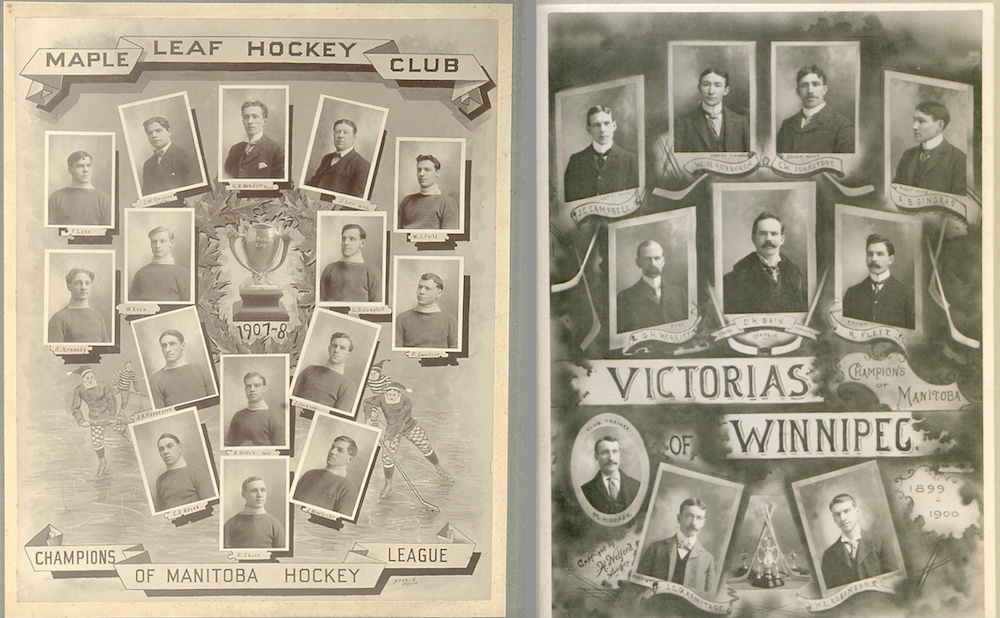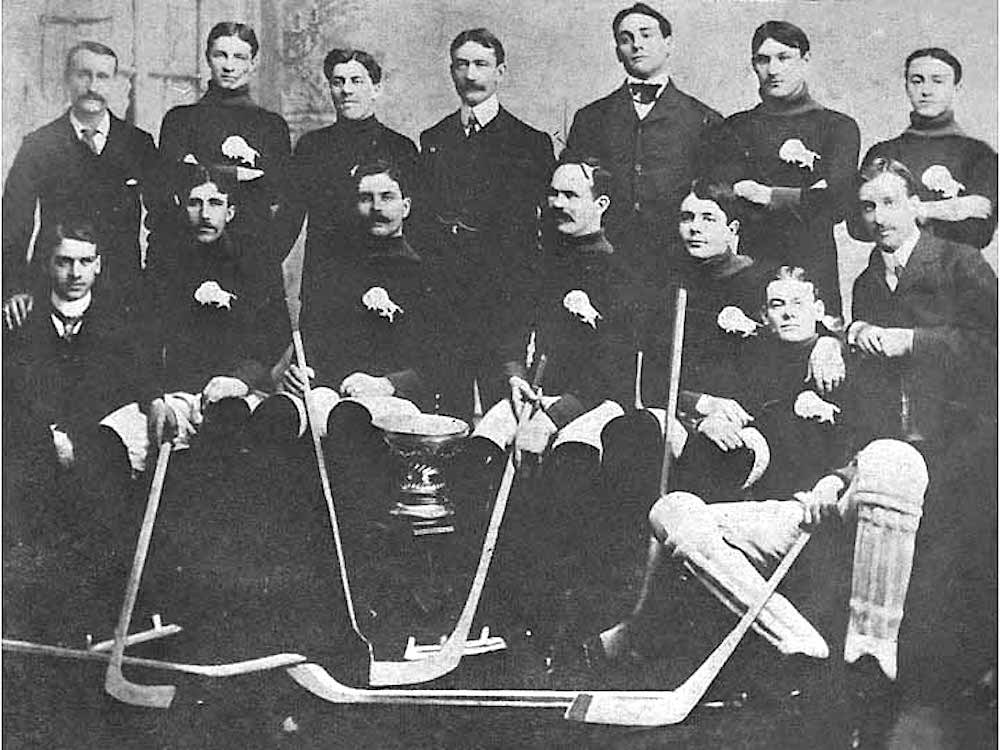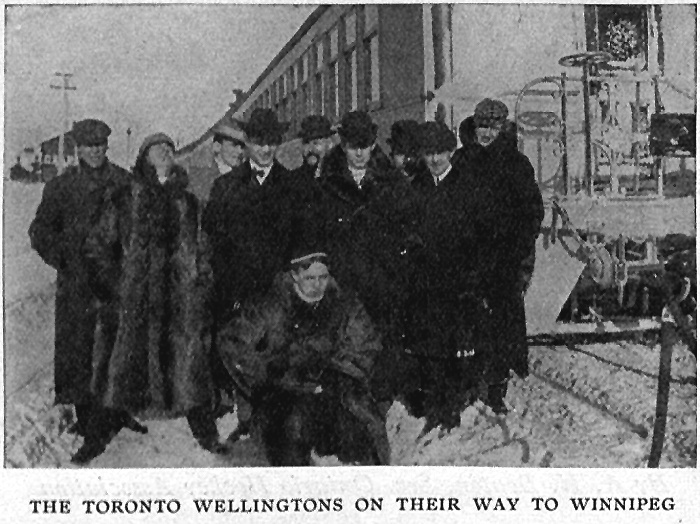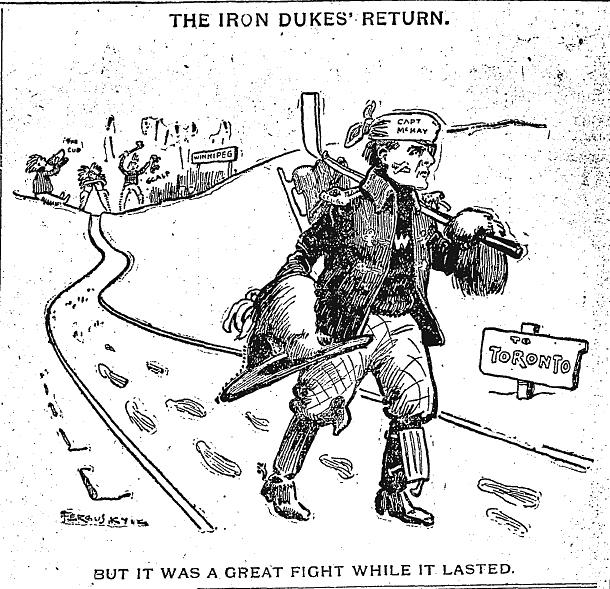Well, the Maple Leafs lost. Again. There was still a long way to go, but there will be no Stanley Cup win in Toronto this year. Again. Just like there hasn’t been since 1967. Haven’t even reached the Finals since then. The Leafs haven’t even won a playoff series since 2004. So, Toronto goes on to Year #55 without a Stanley Cup title, which is the longest drought in NHL history, surpassing the 54 years from 1940 to 1994 that the New York Rangers went without.
Still, when it comes to Stanley Cup droughts, the Leafs are a long way from the longest in hockey history. There’s another city that dwarfs even the drought of 71 years (1945 to 2016) the Chicago Cubs had between World Series appearances, and even the 106 years (dating back to 1908) between Cubs victories. That record drought belongs to … Winnipeg.
Sure, the city didn’t even have an NHL team for long stretches of time, but no team from the Manitoba capital has even played for the Stanley Cup since March of 1908, when (coincidentally) the Winnipeg Maple Leafs were crushed 11-5 and 9-3 by the Montreal Wanderers in a best-of-three-series. The Winnipeg Victorias were Stanley Cup champions in 1896 and 1901, and in that early challenge era when the prized trophy was open to leagues all across the country, they last won it in a successful title defense in late January of 1902. The Victorias defeated the Toronto Wellingtons. That 1902 series marks the first time a Toronto team ever played for the Stanley Cup and the last time a Winnipeg team ever won it. And with the Leafs loss to the Canadiens, it continues to mark the only time that teams representing Toronto and Winnipeg have met in a playoff at hockey’s highest level.

Back at the turn-of-the-20th-century, Winnipeg was a major hockey hotbed. Second only to Montreal. Toronto had plenty of teams then, but the caliber of play in the Ontario Hockey Association was considered weaker than that of Manitoba and Quebec. (Ottawa played in the otherwise Quebec-based Canadian Amateur Hockey League.) Still, the Toronto Wellingtons were senior champions of the OHA in 1900 and 1901, and local backers of the team liked their chances against the Victorias.
Fans elsewhere felt otherwise.
“The Toronto press is still heaping honors on the Wellingtons at the rate of several columns per day and the Stanley Cup is all but on exhibition in the Queen City,” mocked the Ottawa Citizen on January 18, 1902. “There is going to be an unhappy period for those (Toronto) boosters when the Tin Dukes get up against real hockey players in Winnipeg.” (The “Tin Dukes” crack was a shot at the team’s nickname — the Iron Dukes — from the Duke of Wellington for whom they were named.)

the Harold A. Wilson Trophy signifying the championship of Toronto.
Many hockey players — indeed, many athletes in all sports — in this era of amateurism came from well-off families. The Victorias were mainly the sons of Winnipeg’s business elite, with many prominent citizens among their backers. In Toronto, most of the Wellingtons worked in banks or for insurance companies. The OHA was the largest hockey league in the country and rigidly enforced the amateur code, so having money certainly helped! The OHA also seemed more determined than other provincial leagues to maintain a gentlemanly style of play, which, sadly, didn’t help from a competitive standpoint.

In these early days, the need for natural ice meant hockey seasons only stretched from late December to mid March. Train travel meant leagues had to be fairly local, so in order to make the Stanley Cup available to teams all across Canada, the senior champions of any recognized provincial association were able to challenge the current Cup champion. Games could take place before the season, after the season, and even right in the middle of a season. Hence the scheduling of the games in Winnipeg between the Victorias and the Wellingtons for January 21 and 23, with a third game, if necessary, on the 25th. When the Victorias requested that the Stanley Cup series be played later in January, the Wellingtons objected because the bankers on their team had to get back to Toronto in time to balance their books for the first of February.

Obviously, this was a different time … but hockey and the Stanley Cup were hugely popular!

There was, of course, no television or radio in those days, but it was already common for people to meet in public places to listen to someone read out play-by-play reports sent from rinkside by telegraph to newspapers, or for fans to make telephone calls to those newspapers’ offices for score updates. When the Wellingtons traveled to Winnipeg, the OHA’s Toronto-based president John Ross Robertson arranged a novel new way for the fans at home to know what happened.
With the time difference from the West, it was thought that final scores from the Stanley Cup games would be received by telegraph around 11 o’clock or 11:30 at night. When they were, the Toronto Railway Company would blow its big whistle to signal the results: two blasts for a win by the Wellingtons; three would mean victory for the Victorias.

Though few people outside of Toronto gave the Wellingtons a chance in Winnipeg, they surprised their critics by keeping the games close and playing pretty good hockey. Still, the Victorias took the January 21 game 5-3 and won the second game by the same score two nights later, giving Winnipeg a sweep of the series. “We played as hard as we ever played in our lives,” said Wellingtons captain George McKay, “but the checking … was much harder than we were accustomed to. It was fierce.” The players on the Victorias were also said to be faster skaters.

Despite losing their Stanley Cup series, the Wellingtons returned to Toronto and would end the 1901–02 season with their third straight OHA championship. They would win the title again the next year, but passed on another Stanley Cup challenge and withdrew from hockey suddenly and surprisingly just prior to the 1903-04 season.
As for the Victorias, playing a short four-game season in Manitoba against their only senior rival, the Winnipeg Hockey Club, the team went 4-and-0 to win its its tenth consecutive provincial championship in 1902. But after defeating Toronto in January, the Victorias lost the Stanley Cup to the Montreal Hockey Club from the Montreal Amateur Athletic Association that March.
So, while the Maple Leafs are going on to 55 years without the Stanley Cup, the Jets are looking to win Winnipeg’s first in 119 years.
Thanks Eric,
A great story. Go Leafs (next year)!!!
Interesting history! I do wish the Leafs had won last night.
As you said, Eric, I can’t believe it … but I can.
Well … at least the Leafs won’t have to face the Winnipegs … another outstanding piece with great supporting graphics
Truth is that great goaltending can beat the favourite in hockey, just like a stud pitcher can start 3 games and silence the best hitters in the World Series and a dynamic QB can lift a mediocre football team to a Grey Cup. I remember Dryden beating the Bruins pretty much by himself in 1971. Carey Price was the best player in the series. Even in the previous game, the only goals that beat him were deflections off his own player. The Leafs didn’t play poorly — they just could not beat a goalie that was at the very top of his game. If Price continues to play that well, the Habs could go to the final.
The Leafs seem to have reached the point the Blue Jays had in the early 1990s – a great team with some superb players but they couldn’t get over the hump — so they made the trade for Carter and Alomar sending Fred and Tony to San Diego. (I said their first names because we’d fallen in love with those players and hated to see them go.) The Leafs are now at risk of falling in love with their core group to the detriment of what needs to be done.
Swell story and super pix; especially by the train. My buddy at ESPN kept talking up this series so Vic Morren will love it as much as I enjoyed Eric’s latest superior work.
By the way, the 46-47 Leafs upset the favored Habs in a six game final. The difference being, the Syl Apps-captained Leafs had leadership. The current Leafs have paper leaders. Hap Days’s club had guts; this club has individual cartels on skates. Dubas is no Lamoriello and Keefe is no Trotz.
My grandson is 29. His dad was born in ’68 so never saw the Leafs win a Cup. Justin gave up on the Leafs when ownership was only interested in the bottom line. He became a Habs fan. This year’s collapse, which will bring out all the excuses losers use, will have kids the age of my youngest grandchild, if hockey is even an interest, seek another team.
Your fine article may turn Rudi, 10, to hope for the Jets, Habs versus Jets. Brother against brother. No Argos, cursed Leafs, nonpitcher Jays, etc. Toronto may have one of the tallest freestanding structures, the CN Tower, but not much in sports.
Even though I’m a Bruins’ fan, I feel for Leafs’ Nation today. I’ve been alive for three Stanly Cups so I’m happy about that but we’ve had some disappointing events. I became a B’s fan back in 1961 at the beginning of an 8 year playoff drought. We had the 1971 debacle against Montreal, the 1979 “too many men on the ice”, the 2010 playoff meltdown against Philadelphia. It probably doesn’t equal what Toronto is going through today but, I really do feel for the fans.
Thank you for that great piece of history, especially with the commentary pieces from newspapers and photos of the time.
I was heartbroken on Monday night, but I’m looking forward to seeing the Jets play this out. Let’s hope they end their drought.
Go Leafs Go…. Next year?
Outstanding story! Love the history — and sorry for your loss!